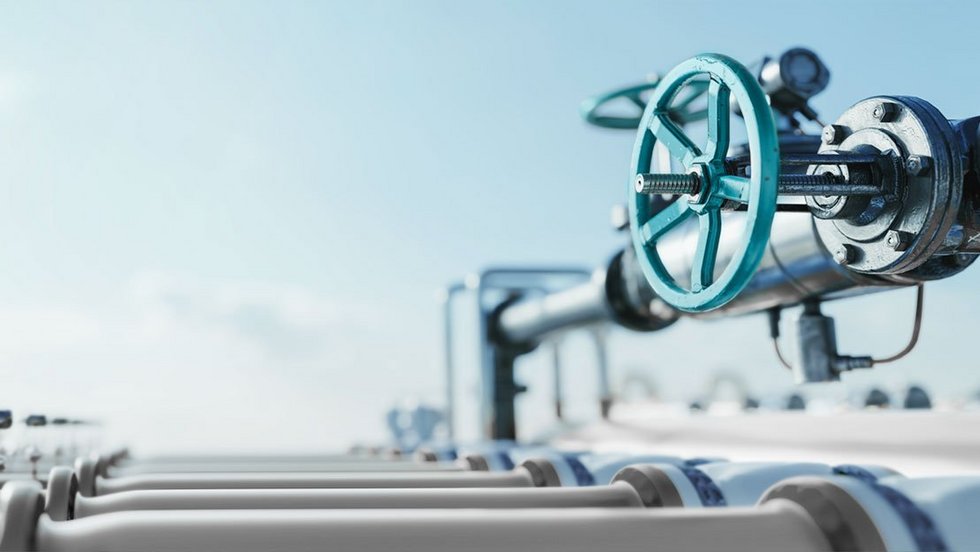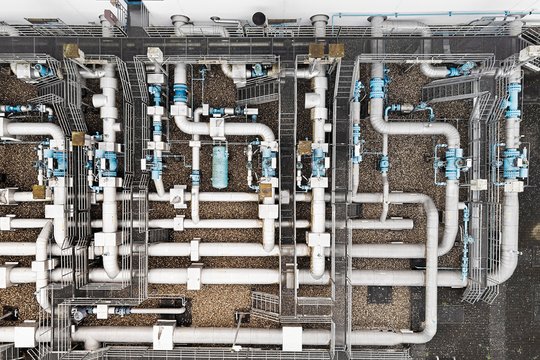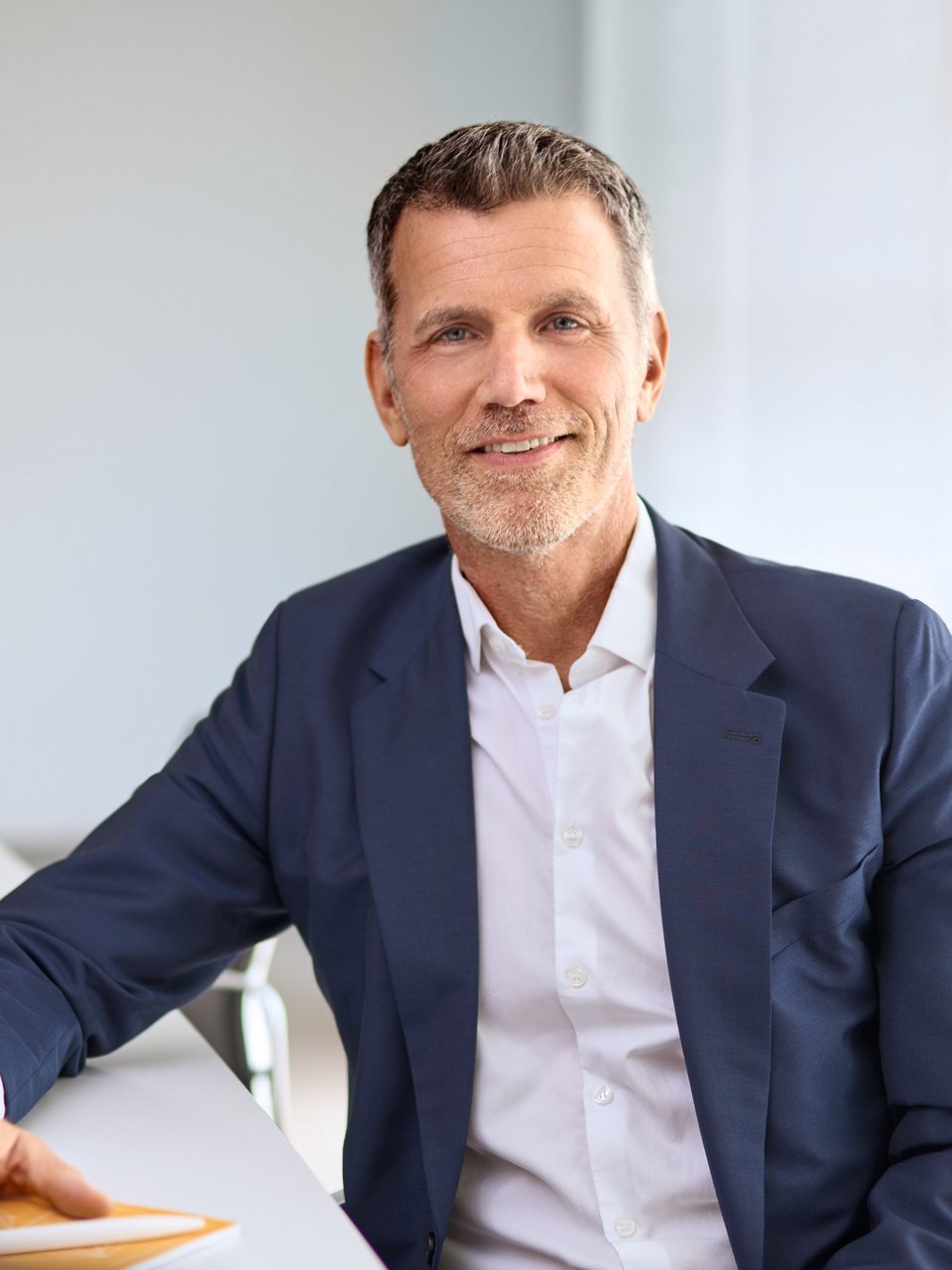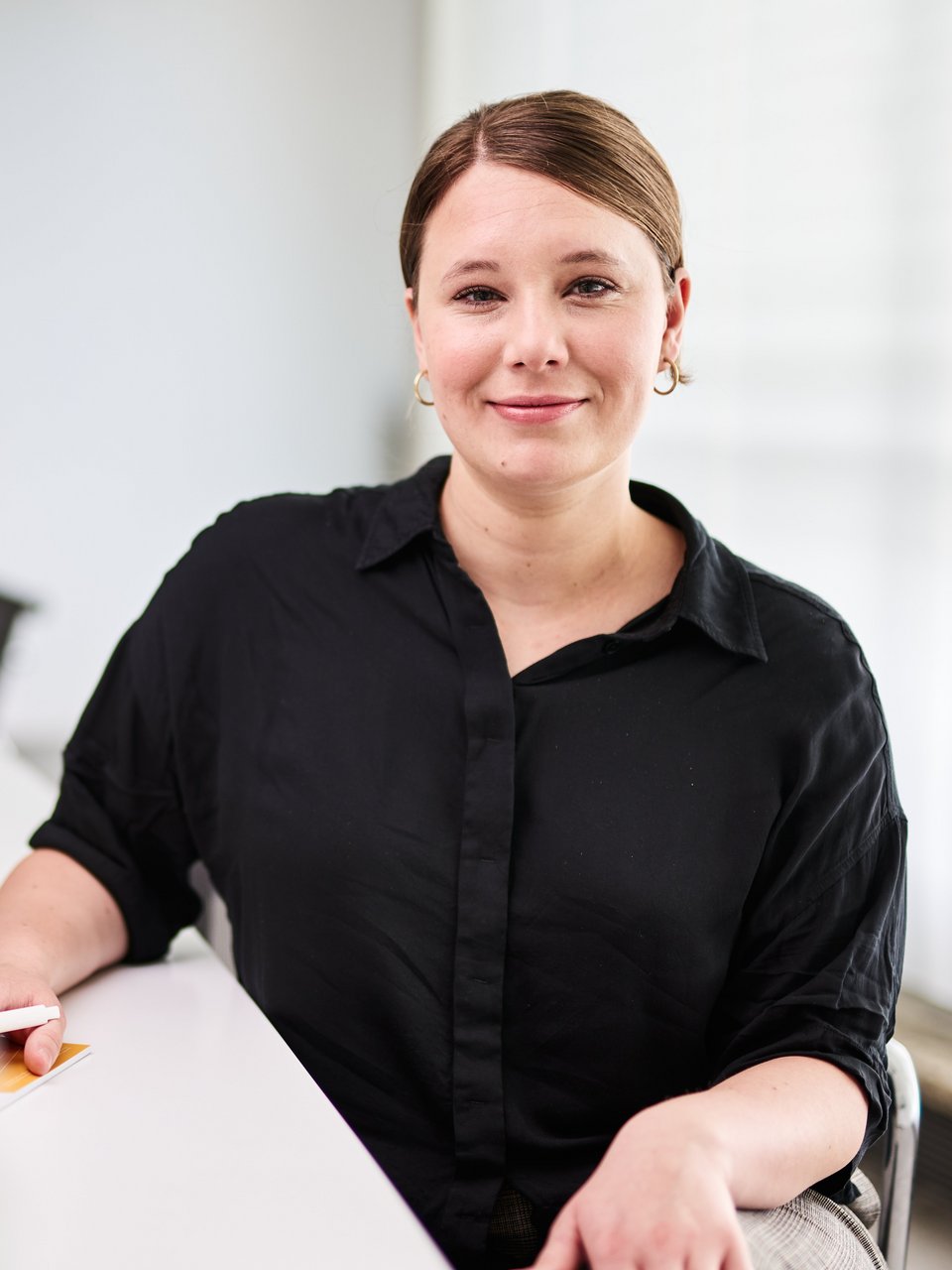The future of energy
We are securing the supply of energy. Today and tomorrow.
Germany is on its way to climate neutrality by the year 2045,
Baden-Württemberg is aiming to reach this goal as early as 2040. terranets bw is part of this transformation, providing important support in the process – thanks to our high-performance transmission infrastructure.
Today, the natural gas transported by us is already building an important bridge into the future of energy supply. We are thus already guaranteeing security of supply during the energy transition today.
This can also be seen in increasing demand: our customers – regional suppliers, power stations and industry – report a significant increase in demand for shipping natural gas.
From the year 2030, our gas infrastructure will additionally play an essential role in transporting hydrogen and climate neutral, green gases.
We are shaping the energy system of the future
For the energy transition to succeed, an efficient transport system for molecules is needed in addition to the expansion of renewable energies. Today, natural gas ensures a reliable supply of heat and electricity - for industry, households and commerce. In the climate-neutral energy system of the future, hydrogen will be the strong partner of renewable energies.
Demand reports show: Germany needs hydrogen
Information on the development of generation and consumption hubs is essential for the design of efficient energy grids. As part of national grid development planning, a joint, Germany-wide survey for the integrated planning of electricity and gas grids (CH4 and H2) will be carried out for the first time in 2024. The results show: Germany needs large quantities of hydrogen. The demand reports have been incorporated into the integrated network development planning of the gas and hydrogen networks.
Start signal for the nationwide hydrogen core network
On behalf of the German government, terranets bw has planned a nationwide hydrogen core network together with the German transmission system operators. By the year 2032, a nationwide hydrogen network expanding over approximately 9,000 kilometers is to be created. In Baden-Württemberg, it will connect central consumption hotspots: the greater Stuttgart area and the Rhine-Neckar region, the eastern Swabian Alb, Upper Swabia, the eastern Lake Constance region, the Upper Rhine and the Mannheim/Karlsruhe region. The South German Natural Gas Pipeline (SEL) will be the central supply artery for hydrogen in Baden-Württemberg.
Step-by-step development of the hydrogen infrastructure in Baden-Württemberg
1 From 2029: H2 in the Freiburg i. B. area
2 From 2030: H2 in the Mannheim / Karlsruhe area
3 From 2030: H2 in the greater Stuttgart area and the Rhine-Neckar region
4 From 2030: H2 on the High Rhine
5 From 2032: H2 in the Ostalb region
6 From 2032: H2 to Lake Constance and Upper Swabia

Faktenblatt zum Wasserstoff-Kernnetz
For a secure supply of gas and hydrogen
The hydrogen core network is just the beginning. Together with the other German transmission system operators and the regulated operators of hydrogen transport networks, we are working with the integrated gas and hydrogen network development planning to build a comprehensive hydrogen infrastructure - depending on the specific development of demand. This creates the roadmap for the necessary conversion of our energy infrastructure.
State-wide survey in 2023 reveals high hydrogen demand
A broad alliance under the patronage of the State of Baden-Württemberg rolled out a campaign to identify demand for H2 . In addition to terranets bw, those involved were among others the H2BW platform, the Centre for Solar Energy and Hydrogen Research Baden Württemberg (ZSW), the Association of Chambers of Industry and Commerce (BWIHK) as well as further associations. Almost five hundred companies and regional grid operators participated.
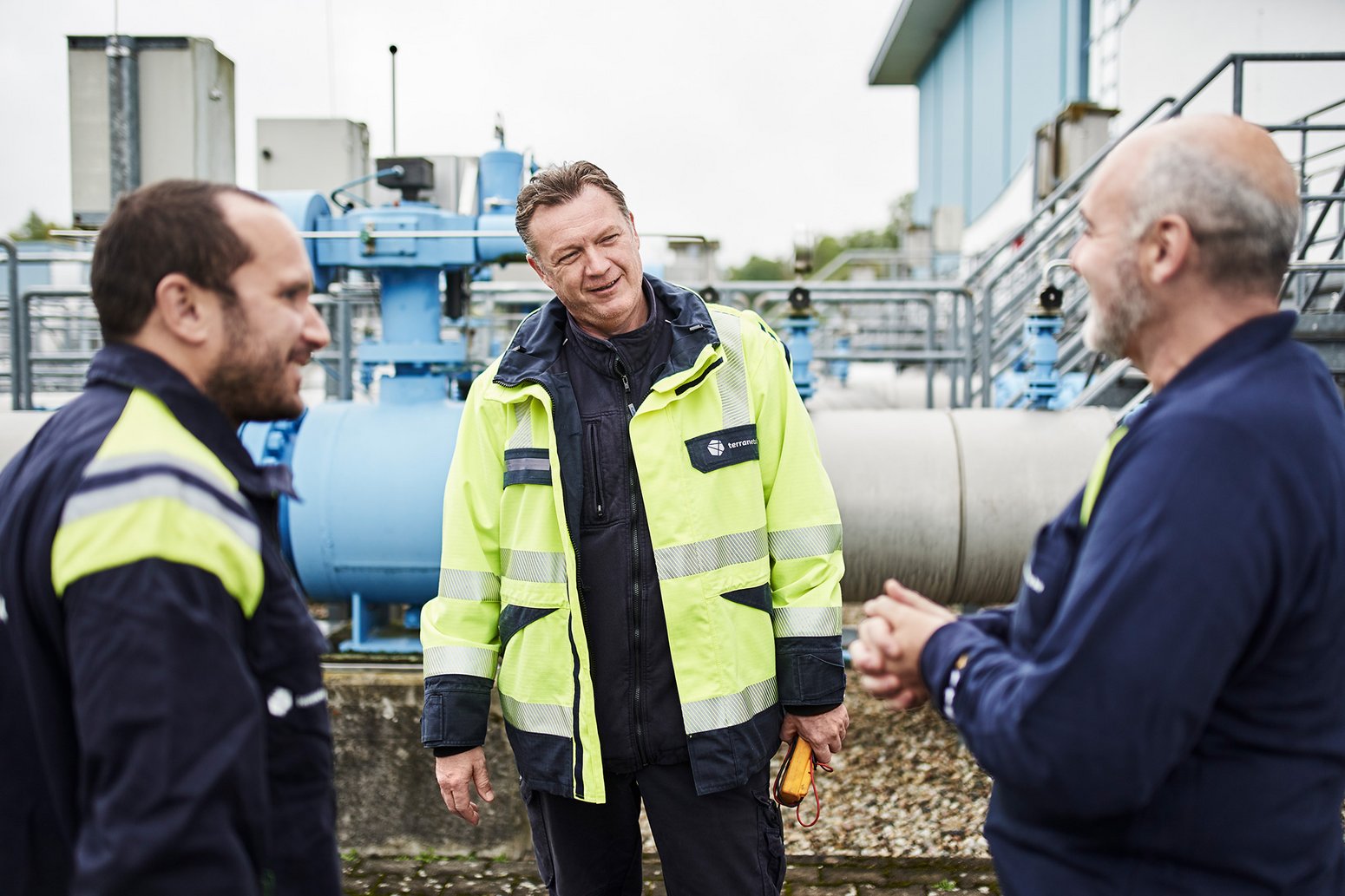
We will be transporting hydrogen from 2029
We ensure a reliable supply with an efficient transportation infrastructure. In the future, we will transport hydrogen in our network. That is why we are making all expansion measures "H2 ready” and therefore hydrogen-compatible. The Neckarenztal pipeline, the first newly built, hydrogen-compatible gas pipeline, has been in operation since 2022.
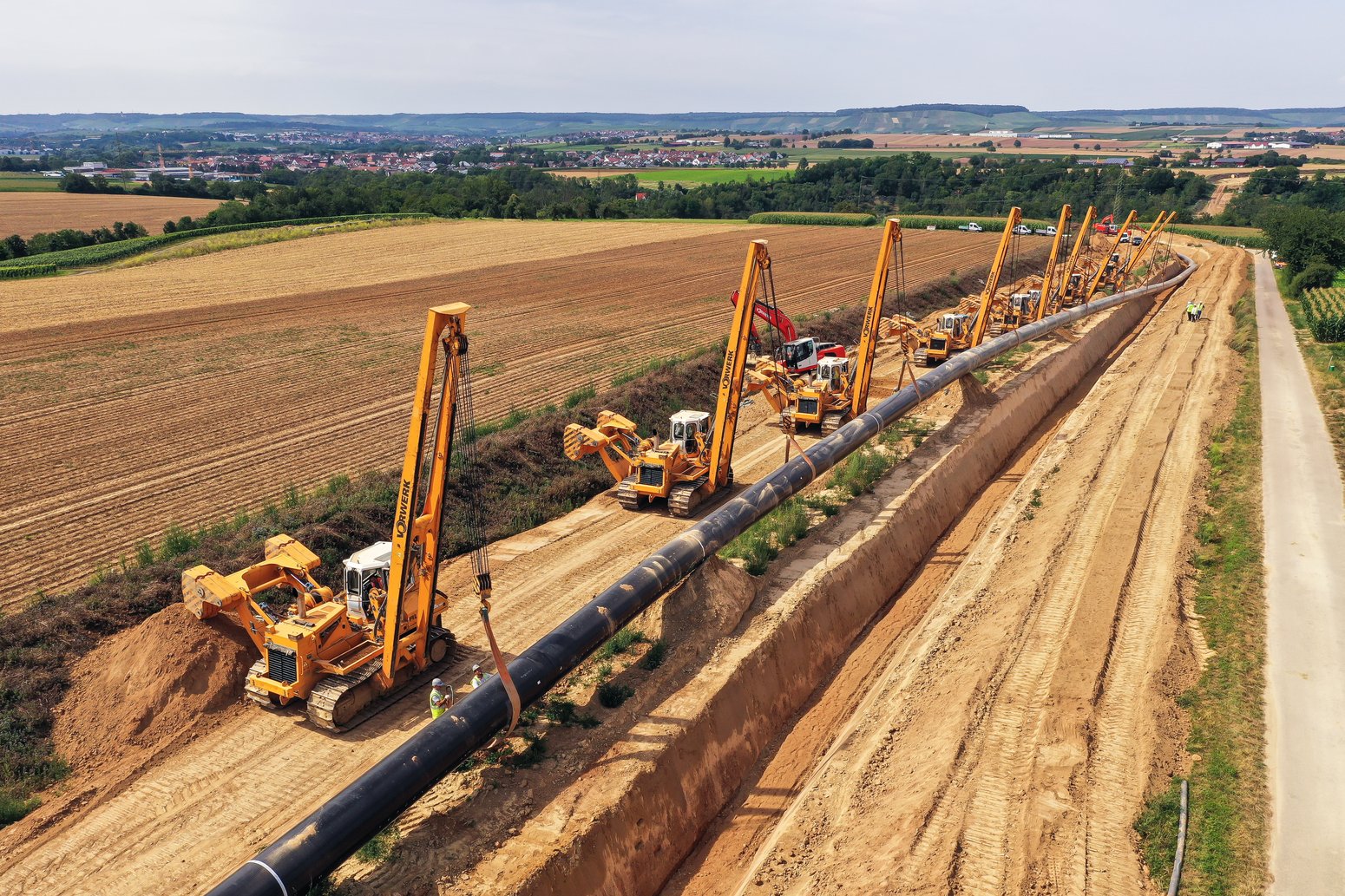
SEL: Central supply artery for BW
We are planning to build the hydrogen network in several stages: From 2029, the first pipelines are to be converted for transportation. From the early 2030s, the Süddeutsche Erdgasleitung (SEL), the first hydrogen pipeline with a connection to European transport routes, will become the central supply artery for hydrogen in Baden-Württemberg. By 2040, a 3,000-kilometre hydrogen network is to be created, 95 % of which will use existing gas pipelines.
"Hydrogen for Baden-Württemberg" initiative
The rapid repurposing of our pipelines for hydrogen is a task that can only be achieved together with other stakeholders and is why terranets bw launched the "Hydrogen for Baden-Württemberg" initiative in 2021.
On the www.h2-fuer-bw.de platform, terranets bw shares clear information about its planning, specific repurposing projects and identifies hydrogen requirements. The initiative connects stakeholders from politics, industry and society.
Learn more about the Hydrogen Initiative for Baden-Württemberg
Our contribution to climate neutrality by 2040: converting the existing infrastructure to ship hydrogen
By the year 2040, Baden-Württemberg aims to be climate-neutral and this means it needs hydrogen. Specific planning for the gradual conversion of the first pipeline sections to ship hydrogen is already underway: the Upper Rhine region is to gain access to the first H2 network in Baden-Württemberg via RHYn Interco from 2028, which will transport 100 % hydrogen. From 2030, the South German natural gas pipeline (SEL) is to be converted for shipping hydrogen, thus enabling large quantities of hydrogen to be transported into the Rhine-Neckar region and greater Stuttgart area. In 2035, the Lake Constance / Upper Swabia region is be been connected.
Discover more: Interview with Managing Director Katrin Flinspach about the accelerated conversion of the gas transmission system as a significant contribution to achieving the state of Baden-Württemberg´s climate targets: To the interview
On the website of its "Hydrogen for Baden-Württemberg" initiative, terranets bw transparently presents its hydrogen activities. How conversion of the existing gas infrastructure could succeed by 2040 is depicted by means of corresponding conversion paths for network transformation based on five consumption regions in Baden-Württemberg. By showing our projects in such a transparent way, we enable potential customers, upstream grid operators and potential producers to plan ahead.
Details on the consumption regions (so-called clusters) shown on the maps are available at www.h2-for-bw.de
Flow
With the project Flow - making hydrogen happen project, the transmission system operators GASCADE, ONTRAS and terranets bw are creating a high-performance pipeline system for green hydrogen from 2025.
Find out more: Flow - making hydrogen happen
RHYn Interco
The Franco-German cooperation project RHYn Interco will create a transportation network for hydrogen in the Freiburg i. B. area.
Find out more: RHYn Interco - a hydrogen project by badenova and terranets bw
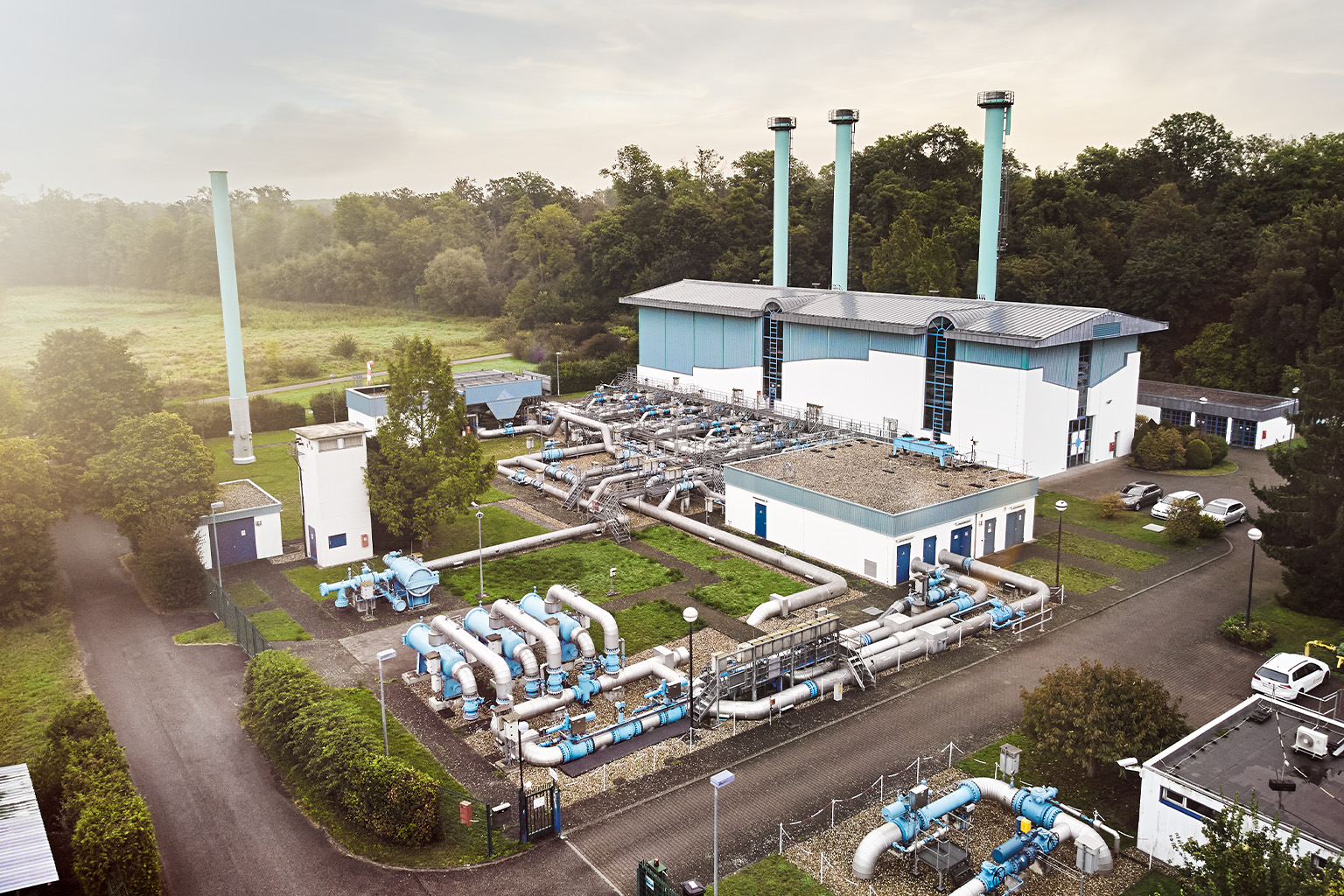
![[Translate to English:] Unser Telekommunikationsnetz](/fileadmin/_processed_/4/8/csm_Telekommunikation_Kabel_Unschaerfe_blau_gelb_terranets-bw_e68fc06931.jpg)
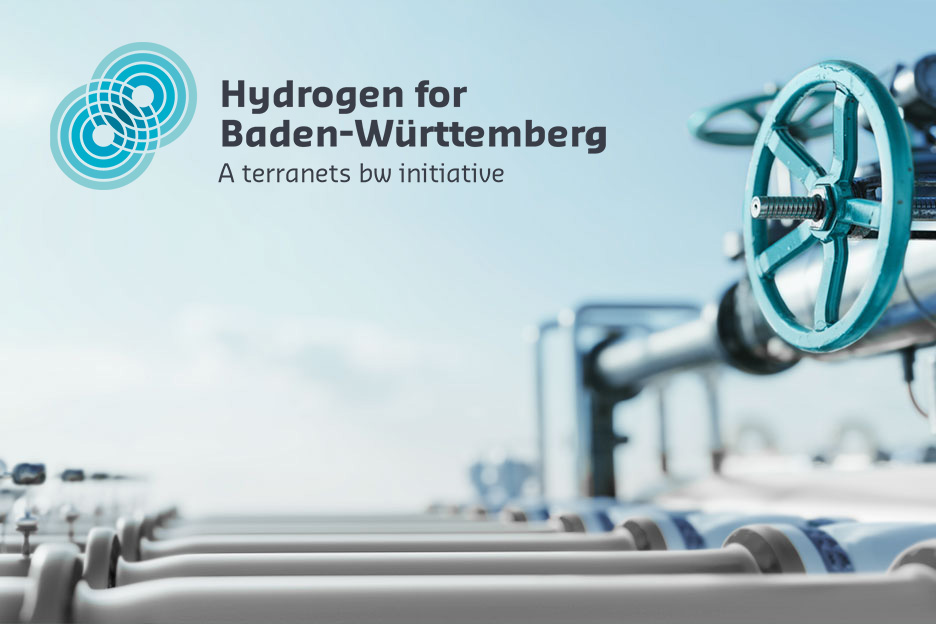
![[Translate to English:] terranets bw / Für Kunden / Telekommunikation](/fileadmin/_processed_/6/7/csm_231222_Mitarbeitender_am_Schaltschrank_6_kl_0cca01e205.jpg)
![[Translate to English:] Kundenportal ConnectCapacity](/fileadmin/_processed_/c/3/csm_231222_Mitarbeitende_der_IT_Computer_8_kl_3266995988.jpg)
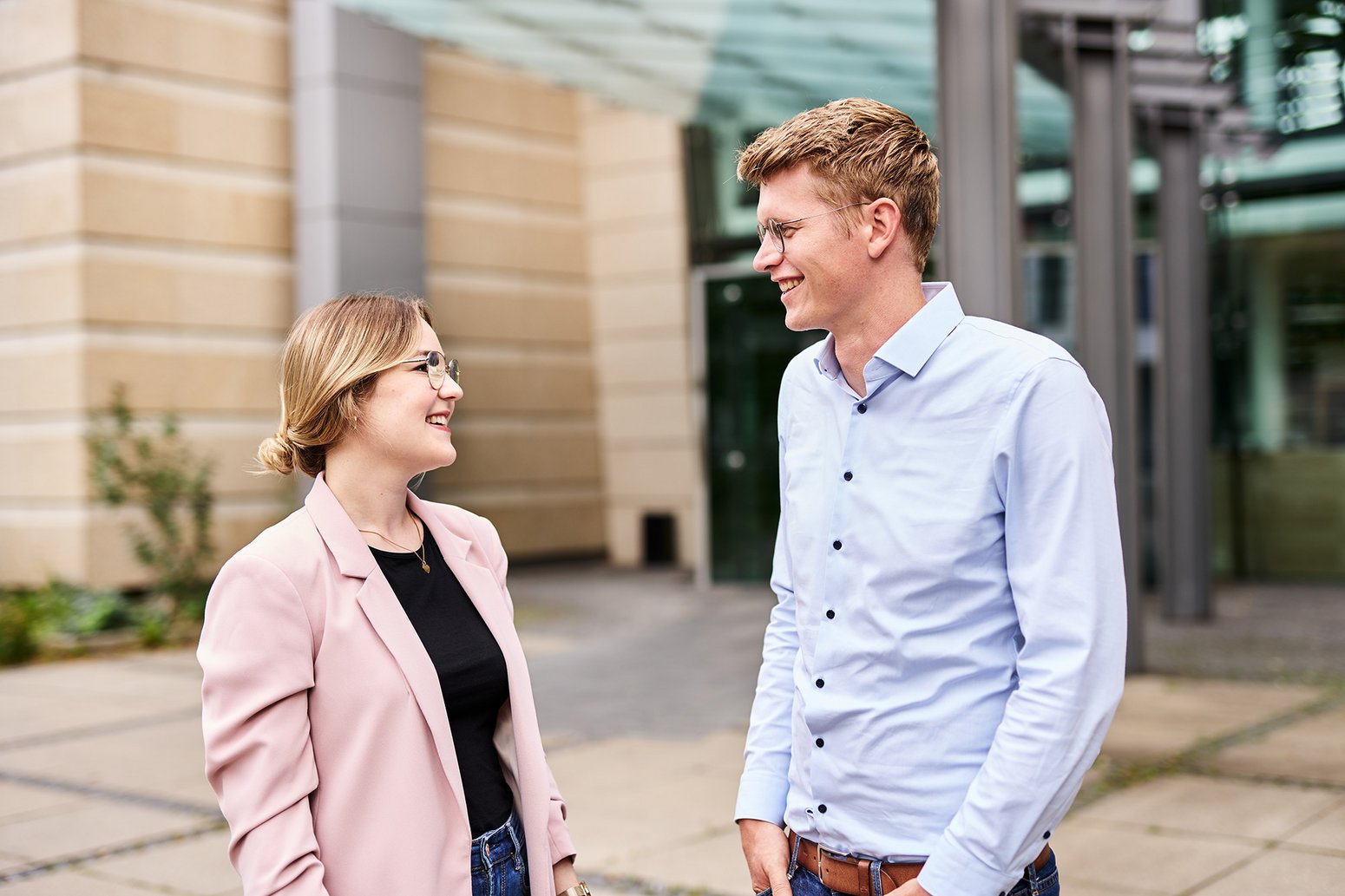
![[Translate to English:] terranets bw Unternehmen Visionen](/fileadmin/user_upload/Content/Unternehmen/Visionen/terranets_bw_Mitarbeitende_Brainstorming_1.jpg)
![[Translate to English:] terranets bw: Wasserstoff für Baden-Württemberg](/fileadmin/_processed_/2/3/csm_Wasserstoff_Inititative_Logo_Energiezukunft_8904d74570.jpg)
![[Translate to English:] terranets bw: Sehen Sie sich unsere Stellenangebote an!](/fileadmin/_processed_/c/0/csm_240507_Mitarbeitende_im_Gespraech_3_bcf21346f8.jpg)
![[Translate to English:] Arbeiten bei der terranets bw](/fileadmin/user_upload/Content/Karriere/terranets_bw_Karriere_Arbeiten-bei-Terranets_3zu2.jpg)
![[Translate to English:] Die Standort der terranets bw](/fileadmin/user_upload/Content/Karriere/terranets_bw_Was-wir-tun_Scharenstetten_3zu2.jpg)
![[Translate to English:] Studium, Ausbildung oder ein Praktikum bei der terranets bw](/fileadmin/_processed_/2/f/csm_TERRANETS_Bild_Fuer-Praktikanten-und-Auszubildende_Fuer-Schuelerinnen_3zu2_360e1e705d.jpg)
![[Translate to English:] terranets bw: Netzausbauprojekte](/fileadmin/_processed_/4/0/csm_Absenken_Rohrstrang__3__67f60716af.jpg)
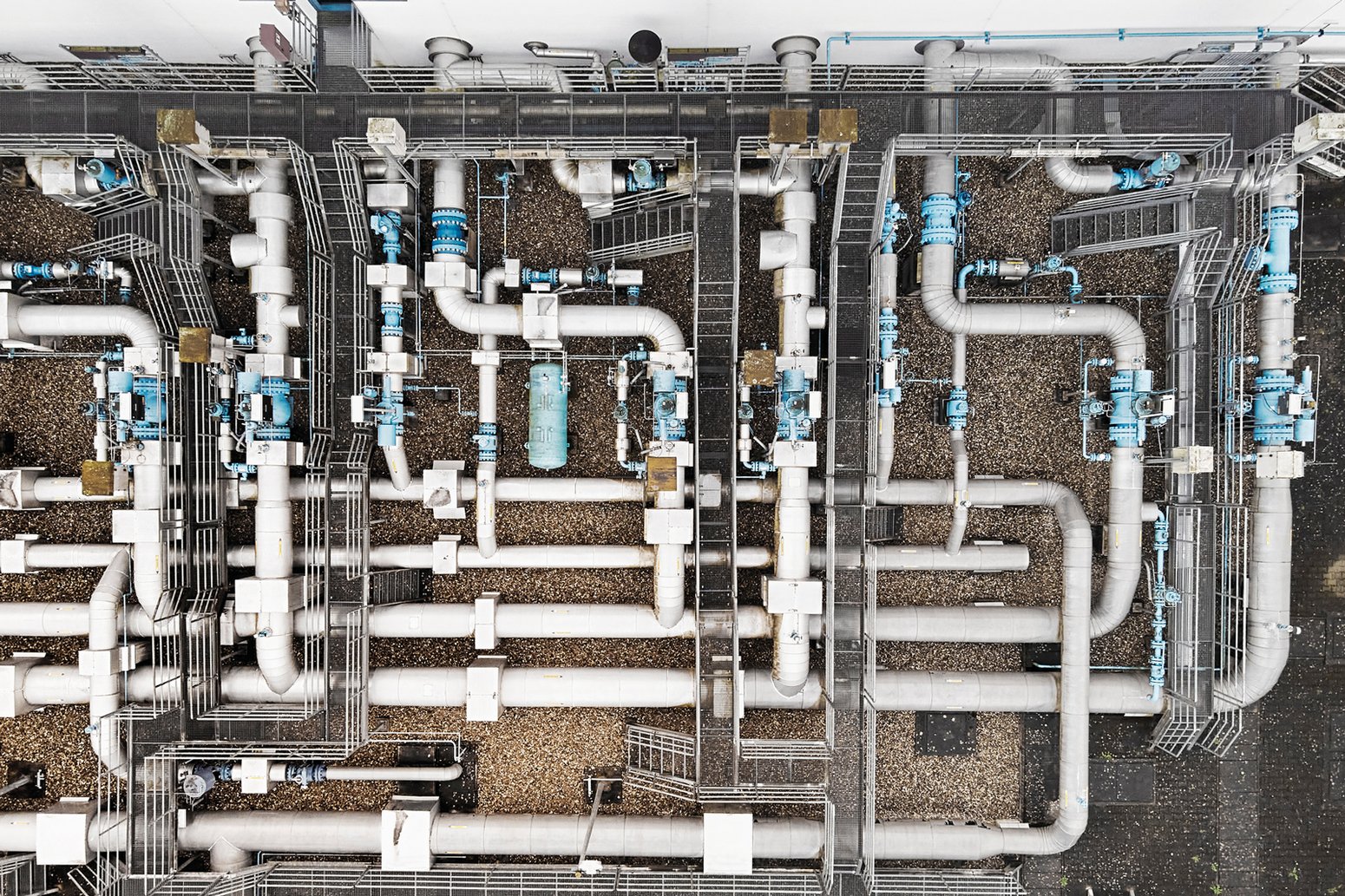
![[Translate to English:] terranets bw Mediathek](/fileadmin/_processed_/2/2/csm_terranetsbw_Flugtafel_3_c6937e947f.jpg)
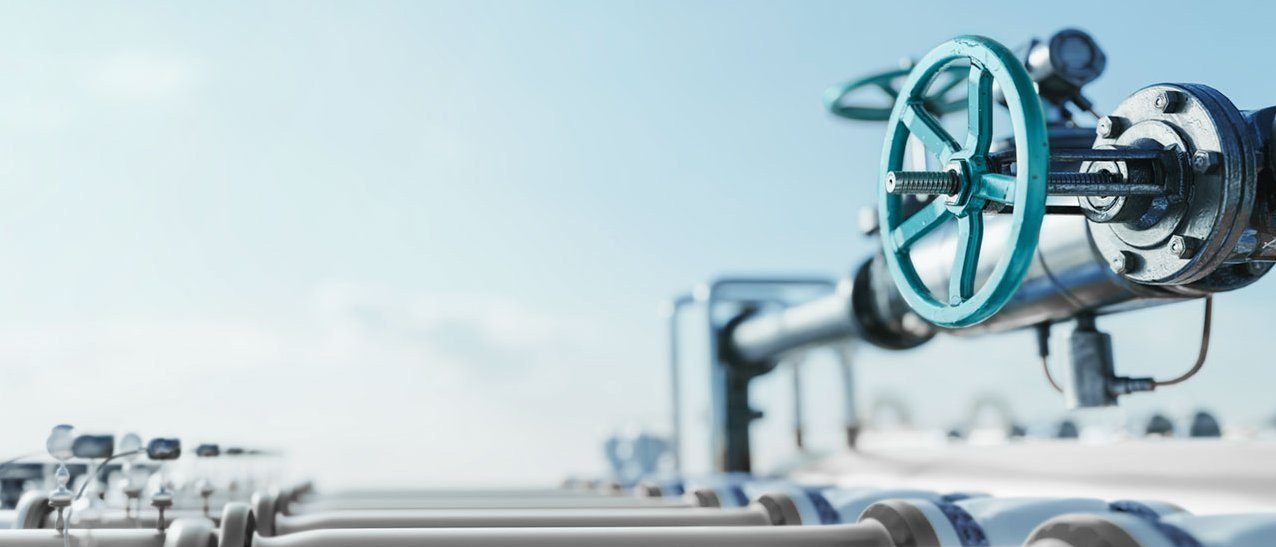
![[Translate to English:] Wir gestalten das Energiesystem der Zukunft.](/fileadmin/_processed_/a/c/csm_Gastransport_Dienstleistungen_6_9845a8f967.jpg)
![[Translate to English:] Bedarfsmeldungen zeigen: Deutschland braucht Wasserstoff](/fileadmin/_processed_/f/b/csm_Wasserstoff_Energiezukunft_Logo_4ba66764bc.jpg)


![[Translate to English:] Für eine sichere Versorgung mit Gas und Wasserstoff](/fileadmin/_processed_/9/8/csm_210908_Schilderpfahl_Feld_Windraeder_f76de3f896.jpg)
![[Translate to English:] terranets bw: Landesweite Abfrage in 2023 zeigt hohe Wasserstoffbedarfe](/fileadmin/_processed_/0/3/csm_210330_h2fbw-xing-header-1280x624_ohne_Logo_efcee70509.jpg)
![[Translate to English:] Energiezukunft: Initiative "Wasserstoff für Baden-Württemberg"](/fileadmin/_processed_/4/8/csm_terranetsbw_Initiative_H2_fuer_BW_720x450_6486f7bf92.jpg)


